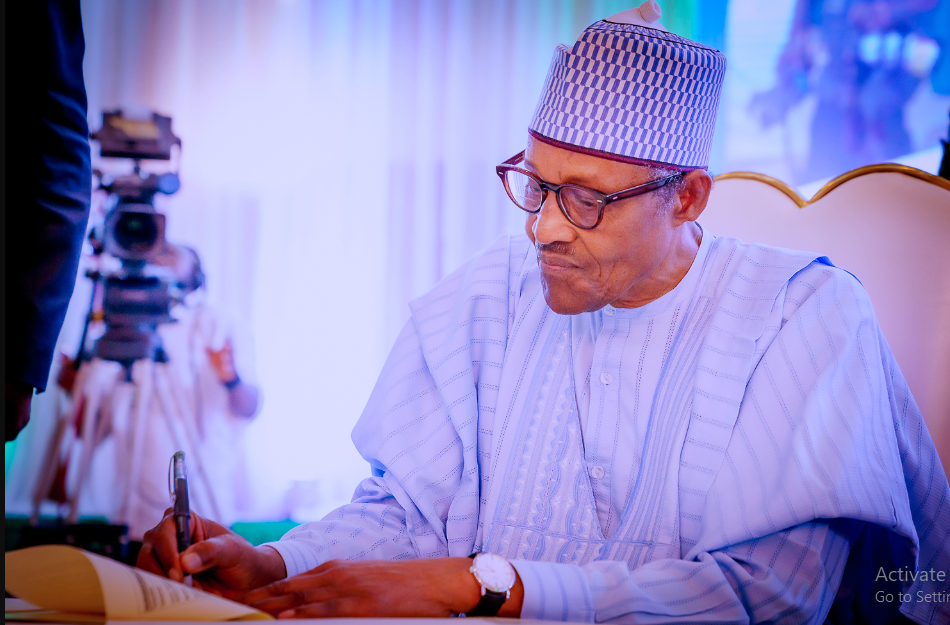When former President Muhammadu Buhari assumed office in May 2015, Nigeria’s education system was in a fragile state—underfunded, poorly managed, and plagued by years of neglect. With promises of reform, discipline, and a break from the past, Buhari’s administration sparked high expectations for a turnaround in a critical national sector.
Eight years later, the record is mixed: policy expansions, funding injections, and reforms were implemented, but budgetary contradictions, strikes, and capacity deficits left much of the system still struggling.
One of the earliest signs of concern was the steady decline in the education sector’s share of the national budget.
- In 2015, just before Buhari took office, education accounted for 10.7% of the national budget.
- By 2016, it dropped to 7.9%.
- In subsequent years, it declined further—7.4% in 2017, 6.7% in 2020, and 5.6% in 2021.
- In 2023, education was allocated just 5.3%, far below the UNESCO-recommended 26% benchmark.
Despite nominal increases, the actual percentage allocated to education consistently fell, creating a gap between capital investment and operational functionality. While buildings and infrastructure were upgraded, basic running costs, staff salaries, research funding, and student welfare suffered.
To mitigate the effects of shrinking direct allocations, Buhari’s government leaned heavily on the Tertiary Education Trust Fund (TETFund).
Between 2015 and early 2023, TETFund injected over ₦1.7 trillion into universities, polytechnics, and colleges of education—surpassing the combined disbursement of the fund’s first 20 years (1993–2014).
- In 2023, each federal university received over ₦1.15 billion, while polytechnics and colleges of education received ₦699 million and ₦800 million, respectively.
This was a historic intervention—but one that raised questions about misaligned priorities, with ASUU arguing that infrastructure upgrades did not address the core grievances of the academic workforce.
Despite TETFund’s capital push, the Buhari years were marked by frequent and prolonged ASUU strikes, culminating in over 663 days of lost academic activity:
- 2017 – 1 month
- 2018 – 3 months
- 2020 – 9 months
- 2022 – 8 months (14 February to 14 October)
The strikes were rooted in demands for revitalisation funding, earned academic allowances, and opposition to the IPPIS salary platform. The federal government’s repeated failure to honour agreements deepened mistrust and frustration across the sector.
Under Buhari, Nigeria witnessed a massive expansion in university licensing, rising from 128 in 2015 to 222 by 2023.
- 10 new federal universities
- 22 new state-owned universities
- 62 new private universities
While this broadened access to tertiary education, it also exposed a lack of readiness. Many of the new institutions struggled with accreditation, staffing, and infrastructure, raising concerns about quality assurance.
In a significant policy move, Buhari approved the extension of teachers’ retirement age to 65 years or 40 years of service, whichever came first.
Alongside this, the administration introduced:
- A special salary scale for basic and secondary school teachers (effective January 2022)
- A dedicated pension scheme for education professionals
These reforms were designed to improve teacher retention and morale, though implementation across states remains inconsistent.
The administration committed ₦240 billion in Universal Basic Education (UBE) matching grants to states between 2015 and 2023. However, many states failed to access these funds, unable to meet counterpart funding requirements.
An additional ₦24 billion was earmarked for the Teachers Professional Development Fund.
Despite the availability of funds, bureaucratic bottlenecks and weak political will left much of the intervention unutilised, particularly in northern states where out-of-school children remained a major concern.
Buhari’s government reversed two contentious curriculum changes inherited from previous administrations:
- Restored Christian Religious Knowledge (CRK) and Islamic Religious Knowledge (IRK) as distinct subjects, following public outcry over their merger into Civic Education
- Reintroduced History as a standalone subject at the basic level, reversing its merger into Social Studies
These moves were widely welcomed and seen as a reaffirmation of national identity and moral education.
One of the most publicised claims was the reduction of out-of-school children from 10.1 million in 2019 to 6.94 million by the end of 2020.
This 3.2 million drop was credited to the World Bank–funded BESDA programme, which expanded formal and non-formal education in 17 states.
- 1.79 million children were integrated into the formal school system
- 1.45 million were reached through non-formal channels targeting Almajiri, girls, nomads, and IDPs
While this was a notable achievement, the long-term sustainability of the program remains in question due to weak follow-through and state-level capacity.
The Innovation Development and Effectiveness in the Acquisition of Skills (IDEAS) project was launched with $200 million from the World Bank to revamp technical and vocational training.
Targeting 6 states and 20 federal technical colleges, the initiative aimed to align vocational training with job market needs.
Yet, by early 2024, only $34.9 million had been disbursed. A mid-term review prompted the World Bank to restructure the project, citing:
- Delays in workshop renovation
- Slow procurement of training equipment
- Underwhelming project execution
A revised plan now emphasizes results-based contracting and targeted youth skills funding.
The Buhari administration recorded significant policy strides—more universities, increased TETFund investments, teacher welfare initiatives, and curriculum reforms.
However, these gains were overshadowed by chronic underfunding, persistent industrial actions, slow implementation of key projects, and a lack of structural transformation needed to make the system more resilient.
Legacy Snapshot:
- Expansion of access
- Teacher welfare reforms
- Curriculum corrections
- TETFund revitalization
- Declining budget share
- ASUU strikes and government standoffs
- Weak implementation of skills training
- Inefficient utilization of basic education grants
As Nigeria looks forward, the challenge remains to match access with quality, and reform funding mechanisms to build a stronger, more inclusive education system.

